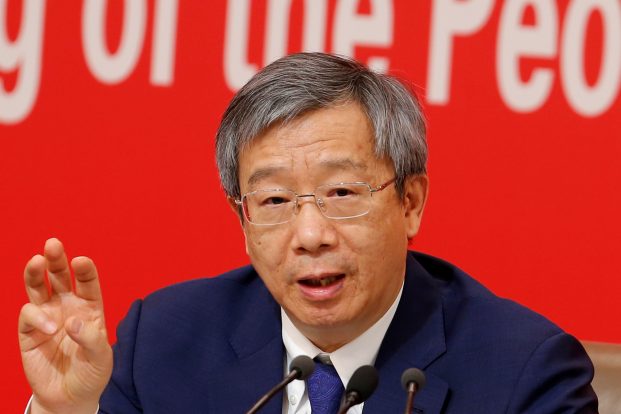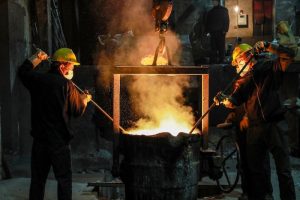China unexpectedly kept its central bank governor Yi Gang in his post at the annual session of the rubber-stamp parliament on Sunday.
President Xi Jinping, who has been installing allies in key roles, also retained finance minister Liu Kun signalling that Beijing is prioritising continuity as economic challenges loom at home and abroad.
“Opting for continuity in these critical economic roles suggests an emphasis on credibility and stability,” said Mattie Bekink, China director at the Economist Intelligence Corporate Network.
Also on AF: Xi’s Remarks on CATL ‘a Warning to Chinese EV Battery Makers’
“It is also perhaps a tacit acknowledgment of some of the challenges for Beijing at the moment,” she said. “The real challenge for this third Xi administration is whether it will address structural imbalances in China’s economy and undertake reforms necessary to ensure China’s long-term competitiveness.”
Beijing has set a 2023 economic growth target of around 5%, up from 3% last year, which was among the weakest performances in decades.
Chinese policymakers face the challenge of getting the economy back on track after three years of Covid-19 restrictions, weak consumer and business sentiment and increasingly adversarial relations with the West, with many global firms looking to hedge their China exposure.
China’s statistics bureau head, Kang Yi, told the parliamentary session on Sunday that China’s economy still contains deep structural “contradictions” and “problems”, according to state media.
‘Steady hand’
The US-educated central bank chief Yi, appointed PBOC governor in 2018, had widely been expected to retire after being left off the ruling Communist Party’s Central Committee during the party’s once-in-five-years congress in October.
Analysts had anticipated that once Yi and Liu stepped aside, they would be replaced by people with far less international experience.
“The US side will be much more comfortable with someone like Yi Gang in charge,” said Alfred Wu, assistant professor at the Lee Kuan Yew School of Public Policy at the National University of Singapore.
“It shows China wants to at least have a dialogue with the United States on monetary policy and financial cooperation,” he said.
Also on AF: China Plans New Financial Regulator, to Scrap Banking Watchdog
Yi’s main challenge remains to keep an increasingly indebted economy growing, while its population declines and ages, the developed world is on the brink of recession, and geopolitical tensions mount.
But analysts say Yi has limited room for more reforms as the Communist Party tightens its grip on the economy.
“Yi has been a steady hand in managing policy and the appointment underlines the importance of policy stability,” said a policy insider who spoke on condition anonymity.
“The PBOC will continue with its modest easing this year, and the possibility of rolling out big reforms is low.”
US-sanctioned general named military chief
Across the slate of appointments, there were fewer changes than anticipated, with most cabinet ministers keeping their posts. However, further announcements are expected in coming weeks as China implements a reorganisation of its financial regulatory structure and other government bodies.
Also on Sunday, China as expected appointed Li Shangfu, who is sanctioned by the United States over the purchase of Russian weapons, as defence minister.
Although his new post within the Chinese system is viewed as largely diplomatic and ceremonial, Li’s appointment is being closely watched given his background, regional diplomats say.
Li’s history as a technocrat – he is an aerospace engineer who worked in China’s satellite programme – will help him play a key part in meeting the interim targets of President Xi Jinping’s goals for the PLA, experts say.
The biggest change at the parliament session was the promotion on Saturday of Li Qiang, 63, a longtime Xi confidant, to premier. The former Shanghai Communist Party boss takes a role charged with managing the economy, replacing Li Keqiang, 67, who stepped down after two five-year terms.
The parliamentary session will end on Monday, with Xi expected to give a speech and Li, the new premier, scheduled to hold a televised media conference afterwards.
- Reuters, with additional editing by Vishakha Saxena
Also read:
China to Form National Data Bureau, Eyes Smart Cities Future
Xi Clinches Unprecedented Third Term as China’s President
China Exports, Imports Slump in First 2 Months as Demand Sinks
China Premier Stresses ‘Stability’ in Congress Report – Nikkei
























